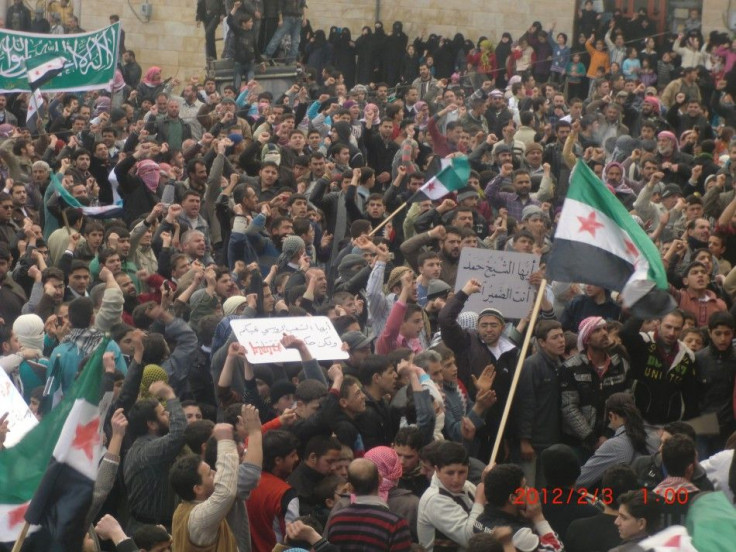After Syria Resolution Fails, U.S. to Consider Sanctions, Arming Rebels

The United States has begun exploring alternate options to stem the bloodshed in Syria after China and Russia vetoed a U.N. Security Council resolution calling on President Bashar al-Assad to cede power.
U.S. Secretary of State Hilary Clinton called for an international coalition of countries that support the Syrian people's right to have a better future and said the U.S. would tighten sanctions intended to block the flow of weapons to the Syrian regime. Russia and China, both of whom condemned the U.N. resolution as a violation of Syria's sovereignty, are among Syria's leading arms suppliers.
We will work to seek regional and national sanctions against Syria and strenghten the ones we have, Clinton told reporters in Sofia, Bulgaria, according to al-Jazeera. They will be implemented to the fullest to dry up the sources of funding and the arms shipments that are keeping the regime's war machine going.
While it is unclear whether such sanctions would significantly undermine the Assad regime, they will at least buy some time for behind the scenes negotiations aimed at getting Assad to step down or agree to a national unity government, according to Ibrahim Warde, a professor at Tufts University's Fletcher School of International Relations.
Politically, in terms of public opinion and the expectations of the international community, I think the most likely thing to happen is further sanctions as a way of showing discontent with Assad's policies, Warde said.
Posssible Increased Support for Opposition Groups
The other scenario entails bolstering the armed opposition groups that are clashing with regime forces in what some experts say is increasingly resembling a civil war. U.S. Sen. Joe Lieberman, I-Conn., advocated that route during a panel discussion, saying the United States should begin providing dissidents with anything from medical supplies to weapons.
The commander of the Free Syrian Army, a group of Syrian army defectors that is headquarted in Turkey, told The Associated Press that the collapse of the U.N. effort made military action against the Assad regime the sole remaining option.
We consider that Syria is occupied by a criminal gang and we must liberate the country from this gang, Col. Riad al-Asaad told the Associated Press. This regime does not understand the language of politics. It only understands the language of force.
The Obama administration so far appears wary of that approach, with one anonymous official telling The New York Times not to expect another Libya. American support for the armed dissidents who eventually toppled Colonel Moammar Qaddafi was initially hailed as a success, but ongoing violence between rival rebel groups has made Libya into something of a cautionary tale.
I think there are conflicting pressures in terms of policymaking in that on the one hand the Libyan precedent of a strong and open support to the opposition is not fully convincing given what has happened since in Libya, Warde said. There's also some misgivings again on the part of the administration about how far we should go in terms of supporting the opposition because the opposition itself seems to be quite divided.
Supporting the rebels also risks escalating the situation in Syria, and Clinton pointedly said the proposed international alliance would back the opposition's peaceful political plans for change. But clashes around the city of Homs, a locus of opposition to Assad, is already akin to a civil war, according to Andrew Tabler, a fellow with Washington Institute for Near East Policy and author of In the Lion's Den: an Eyewitness Account of Syria's Battle With Washington.
The question is to what extent does the United States begin to support the Free Syrian Army? Tabler said. It's a disorganized group and exactly who's in it is unclear, but yet it is one of the major forces on the ground and a key player in a struggle between the Assad regime and the Syrian opposition.
--
© Copyright IBTimes 2025. All rights reserved.





















